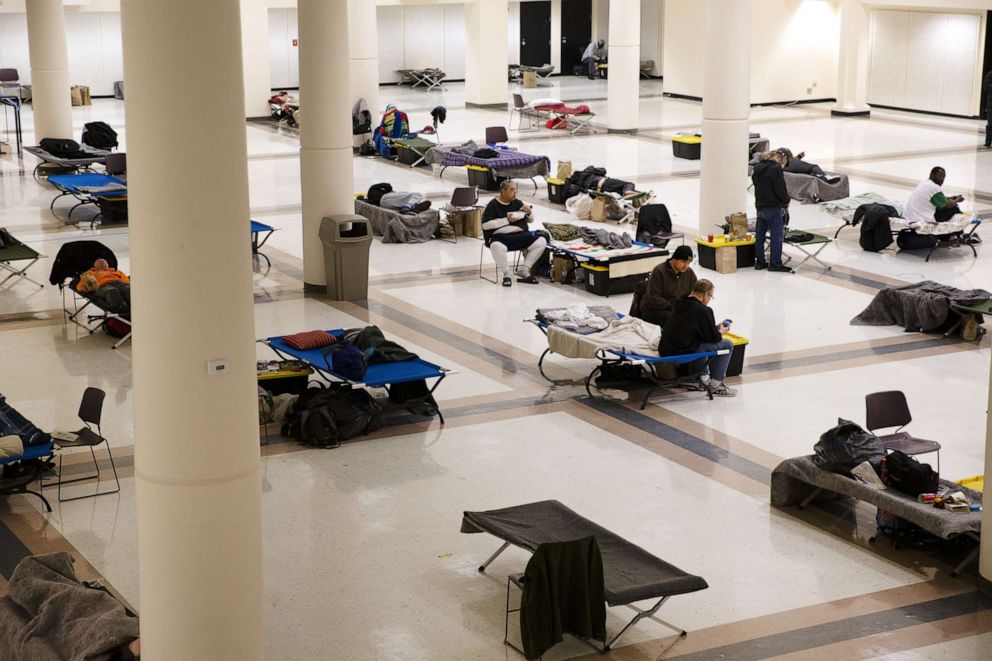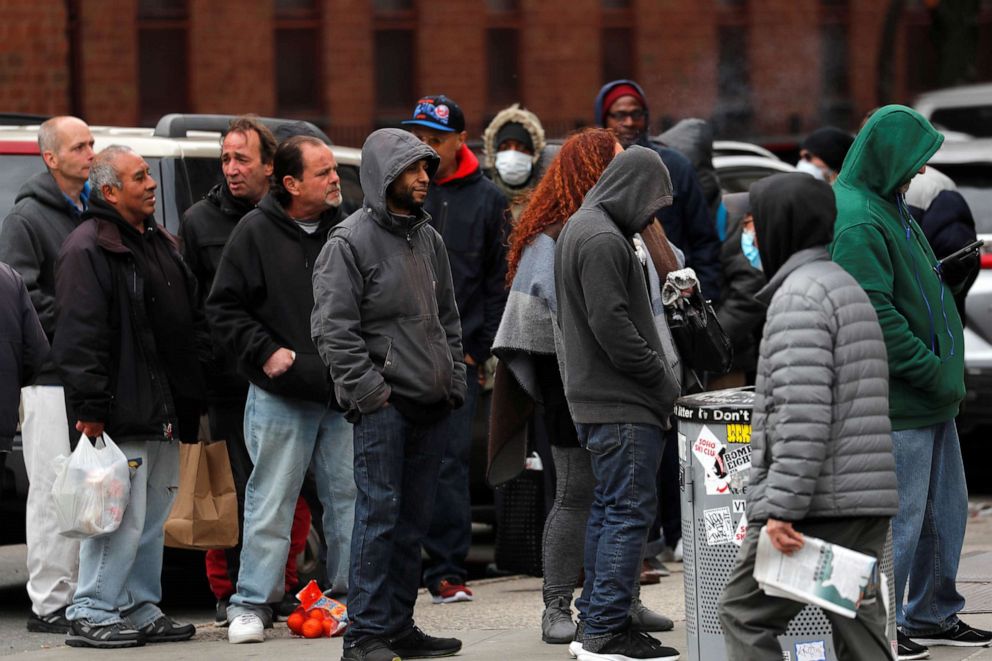Some homeless Americans unaware of coronavirus as shelters scramble to adhere to guidelines
A report estimates that COVID-19 will kill 3,400 homeless Americans.
The homeless community is among the most vulnerable of contracting the deadly novel coronavirus.
“Housing is health care so people without housing really are in a compromised health situation from the get-go," Nan Roman, president and CEO of the National Alliance to End Homelessness, told ABC News.
“They're a high-risk population," she added. "People who are homeless live in situations that don't contribute to good health, they're under stress, they don't eat well, they don't have a home, they are traumatized."
Another area where she sees major concern is their access to food. Some shelters don't actually provide meals and instead rely on donations from volunteers.
The biggest issue right now, according to Herbert Smith, president and CEO of the Los Angeles Mission, is that the homeless need to understand they aren’t immune from the virus.
“The biggest challenge, I think, is really just getting people to understand the severity of it,” he said.

Over half a million people experience homelessness on a given night in the U.S., according to a 2019 White House report. New research from UCLA’s Fielding School of Public Health, Boston University and the University of Pennsylvania shows that COVID-19 is likely to kill more than 3,400 homeless Americans.
In California, those numbers could reach as many as 1,200 deaths and 7,000 hospitalizations, according to the report. Los Angeles has one of the largest homeless populations in the country and officials have been planning on testing the homeless there for weeks, but with a current lag in receiving test results, they haven’t figured out how to inform someone if they've tested positive.
Los Angeles Fire Department spokesman Peter Sanders told ABC News that testing has already begun at shelters but not on streets. Sanders said some homeless people have not consented to the swab test.
A game-changer for the city, according to Sanders, would be the five-minute test to eliminate the lag in obtaining results and remove the fear that officials won’t be able to find, treat and isolate those who have the virus.
“They’re just detached,” Roman said. “A lot of homeless people do have phones but many don’t … they don’t have any way to find out these things.”
During this pandemic, shelters are having to adjust their facilities to adhere to social distancing guidelines. Smith said his shelters in LA are being re-worked to create more spacing between beds. Meal lines are also being affected.
“We can’t have as many people in the dining room at any one time so we’ve spaced that out," he said. "We had to cut down some of the sit-down hot meals to takeaway meals for individuals.”
He said he and his team are trying to accommodate everyone and keep them safe. But, he acknowledged, some homeless "feel they’re actually safer out on the street."

Brenda Rosen, president and CEO of Breaking Ground in New York City, said it’s not practical for shelters that are running large-scale operations to comply with the social distancing guidelines.
“They're still eating in the same place and they're still traveling in the same elevator and they're bumping into each other or they're walking right by each other because there simply isn't the space to ensure that," she said.
The $2 trillion federal stimulus package set aside $4 billion to help the homeless. Roman said the funds could be used to create more shelters that meet social distancing guidelines or to rent hotel rooms for the homeless.
But according to the report from UCLA, there’s an immediate need for 400,000 additional emergency accommodation beds to manage the impact of the pandemic. That is estimated to cost $11.5 billion.
“We were hearing about and talking to people who just had really no idea what was going on,” Roman said. “You know, just completely clueless as to what was happening … them being informed or even getting any kind of information is challenging.”




